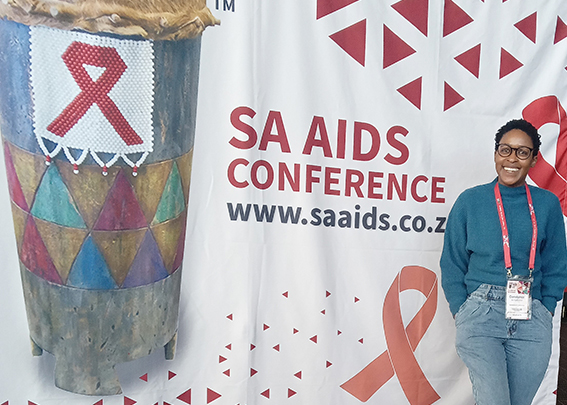
From 20 to 23 June, almost 2 600 delegates who are committed to making an Aids-free generation by 2030 a reality attended the 11th SA Aids Conference in Durban. Over 250 local and international speakers from diverse backgrounds shared their expert insights during 46 sessions. More than 200 poster presentations, 49 symposium sessions and 92 exhibitors provided delegates with further opportunities to learn and connect.
Constance Matlholwa, an Africa Centre alumnus (PgDip 2020) who currently works at the SU Equality Unit as the programme coordinator for the HIV, Sexualities & Gender portfolio that oversees the implementation of Stellenbosch University’s HIV policy, attended the conference for the first time. She shared some of the many highlights of the event:
- Mandisa Dukashe, U=U Global Advisory Board member and co-founder of the UequalsU Africa Forum, spoke about taking the U=U (Undetectable = Untransmittable) message to the community, communicating hope and dismantling stigma around people living with HIV. She emphasised that healthcare providers should explain viral load results to their patients, so that when they’re told their viral load is “okay”, people will understand what it really means.
- The session on differentiated service delivery highlighted the importance of a patient-centred approach to care. This includes healthcare providers moving out of their comfort zones and engaging with people about their needs on their level in order to serve them more effectively.
- In her signature captivating style, Regina Mary Ndlovu (founder and host of the online talk show My Voice Albinism the new Era, coach, actress, motivational speaker and activist) shared her story about the challenges she faced growing up. Constance says Regina’s story stressed the importance of psychosocial support for people living with HIV, who regularly face challenges relating to treatment fatigue and adherence as well as non-disclosure issues. “We should always lend an ear to people’s stories, so that no one is left behind,” was Constance’s takeout.
- KwaZulu-Natal premier Nomusa Dube-Ncube talked about how the province has changed its HIV messaging to initiate discussions about safer sex among youth, which led to a backlash from parents.
- Several changes around first-line ART regimens, with patients switched over to dolutegravir regimens, were also discussed, as well as the 2023 to 2028 National Strategic Plan (NSP) aimed at intensifying efforts in the fight against HIV, STIs and TB.
- CHIVA, which provides support to children and adolescents exposed to or living with HIV and healthcare workers who provide HIV treatment and care, presented their findings and recommendations from their implementation sites. They emphasised the need for support teams to adapt their communication to young people by embracing elements such as peer relations and social media, since the youth often find it difficult to engage with healthcare workers who are “parentlike” figures to them. With the rise of African spirituality among young people, increased engagement of traditional healers was also an important consideration.
The conference included several skills-building sessions. Constance attended the Bridges of Hope session about a participatory approach to having dialogues about various activities focused on HIV prevention, treatment adherence and dismantling stigma. She also attended a hands-on workshop on leveraging behavioural economics to develop low-cost HIV service interventions.
The exhibitions gave Constance the opportunity to engage and connect with different NGOs that can add value to the SU Equality Unit’s services, which include HIV testing, training on gender and sexuality, psychosocial support (including ART adherence) and mentoring peer educators (equality agents). “We will hopefully have the opportunity to collaborate with these organisations in the near future, so that our staff and students can access their services during our health and wellness campaigns on campus,” she said.
The knowledge and skills that Constance acquired as a PgDip student have been invaluable in her current position: “The course has had a significant positive impact on how I do my job and I apply the content regularly, for example in presenting HIV prevention training (one of the course modules) and collecting data correctly to coordinate campaigns.”
Working with students on campus, Constance believes we need to encourage young people to be knowledgeable about HIV. “Not being sexually active is no excuse to be ignorant. In fact, it is an opportunity to learn more so you are empowered to make informed decisions when you do engage in sexual activities,” she said. “I want to encourage young people to access our services and ask questions; I am always available to have the ‘uncomfortable conversations’”.
Interested in listening to some of the conference presentations?
Many of the speakers’ presentations will be available on www.saaids.co.za from 14 July.
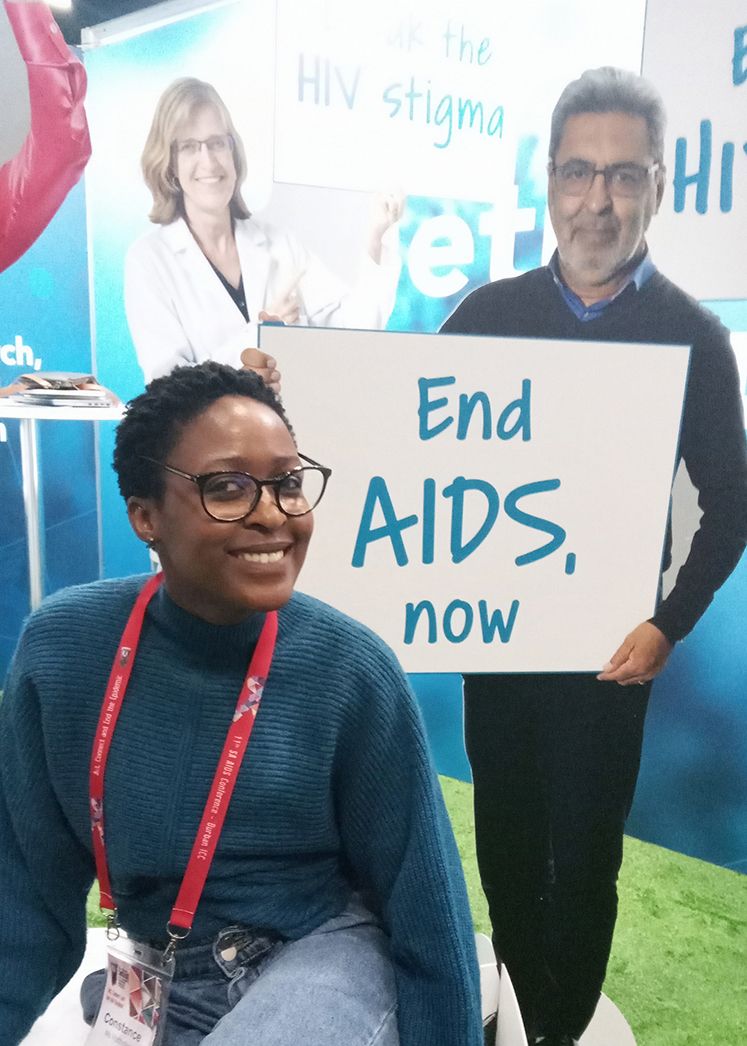
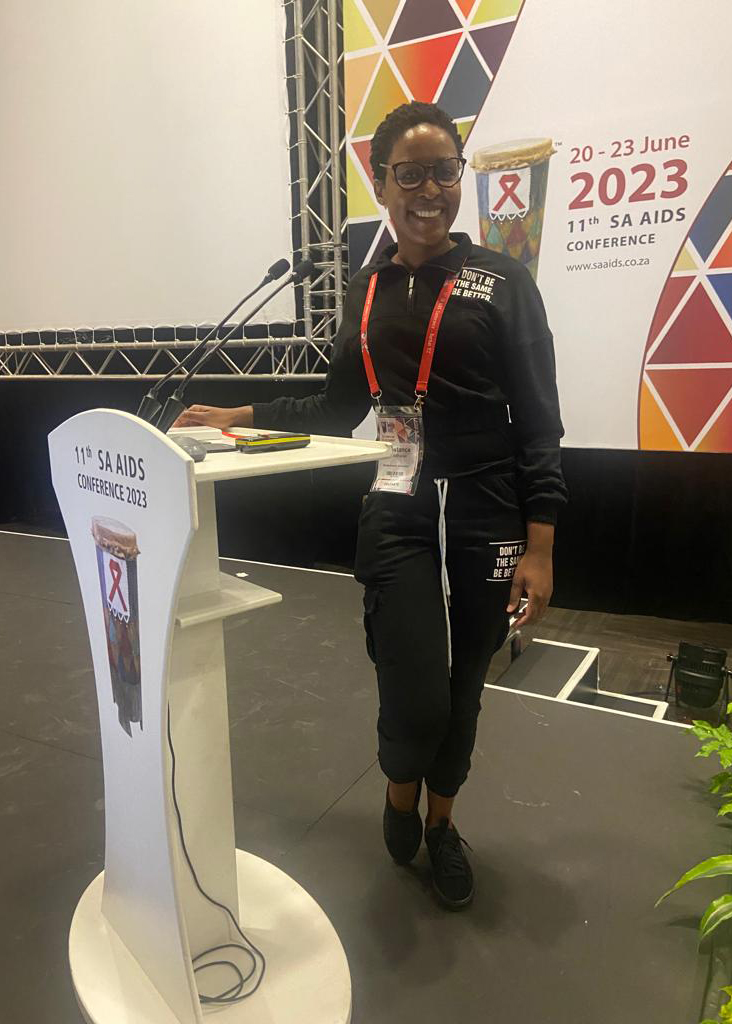
Constance Matlholwa at the 2023 SA Aids Conference in Durban.
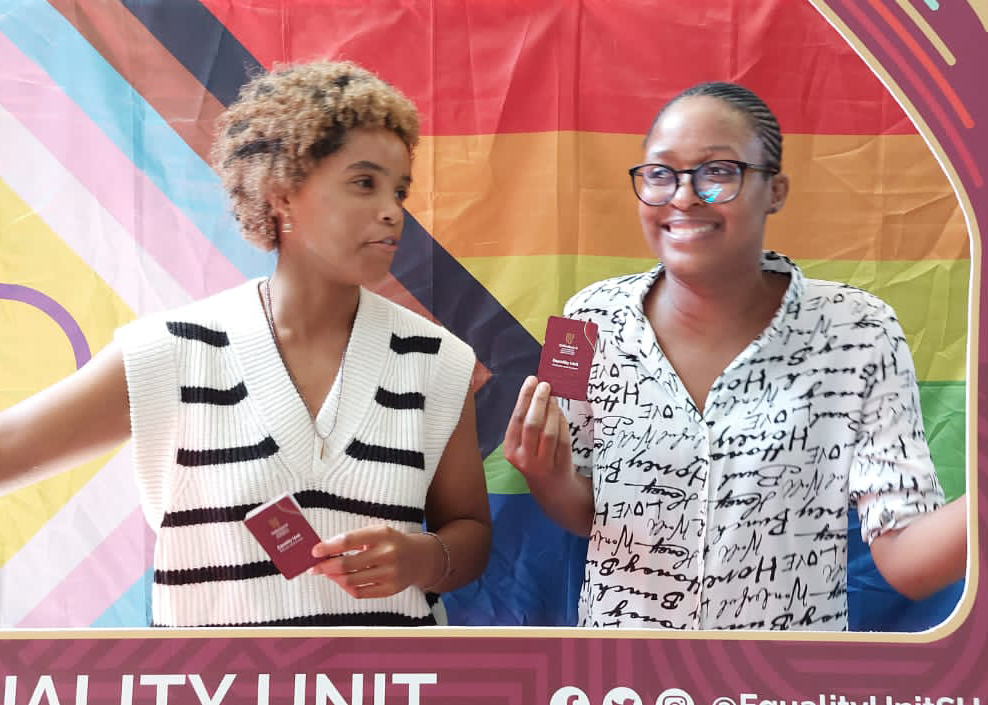
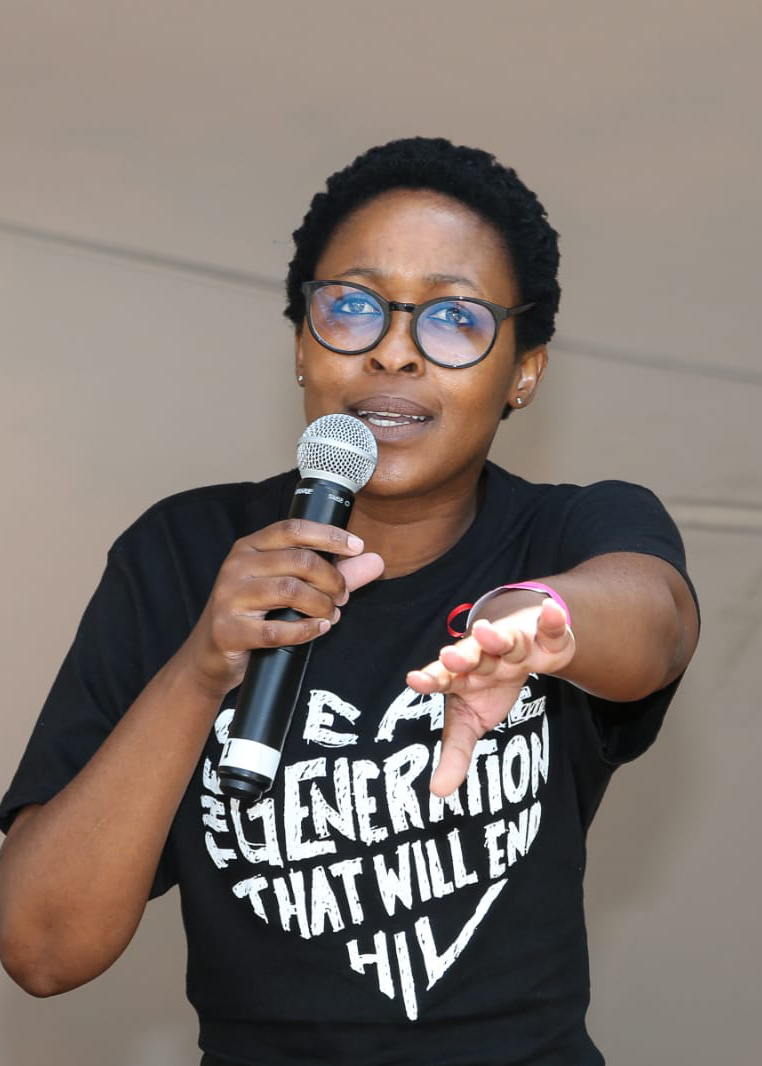
The SU Equality Unit’s HIV, Sexualities & Gender portfolio runs on-campus campaigns to create awareness, provide testing and support services and to encourage engagement around issues relating to sexuality and gender.
